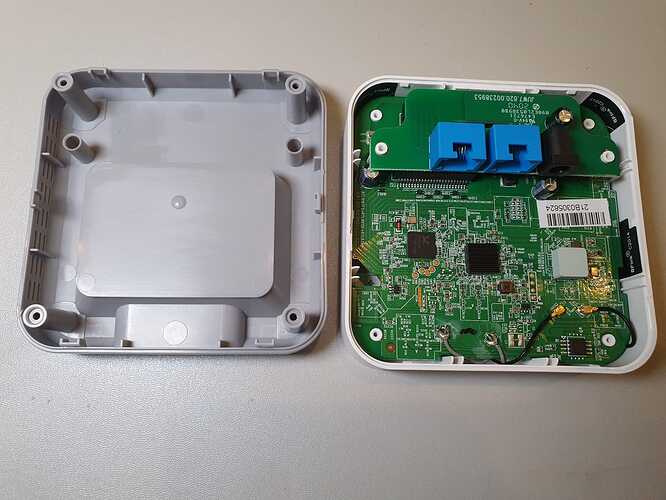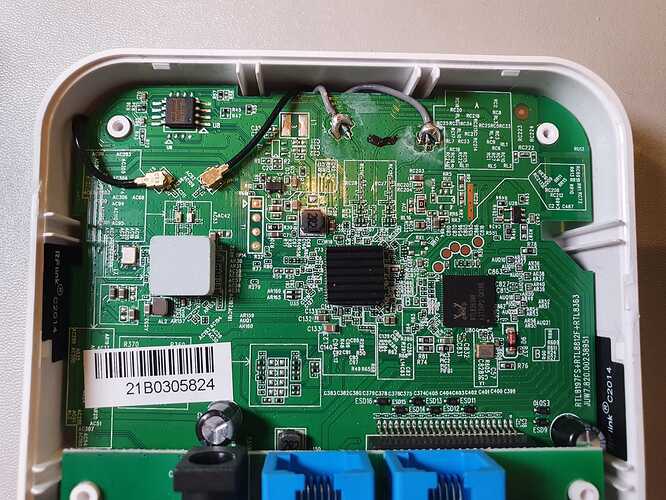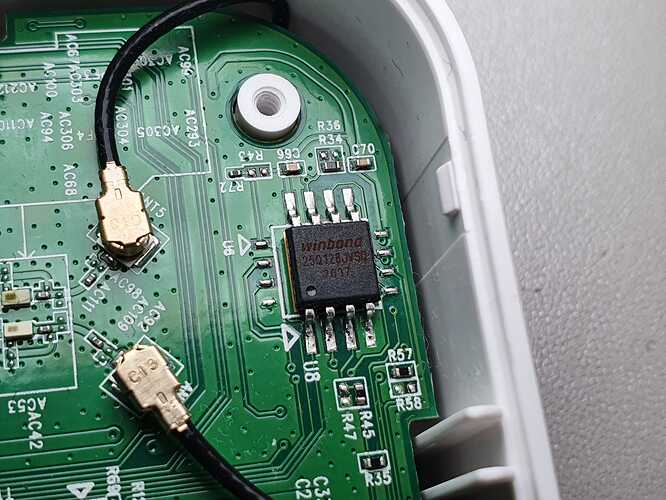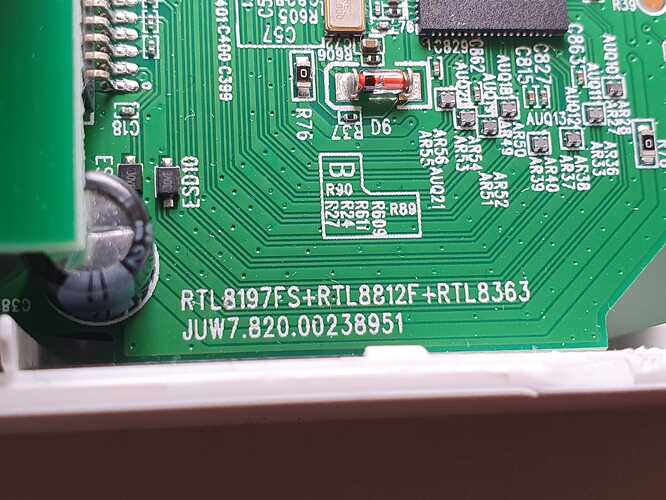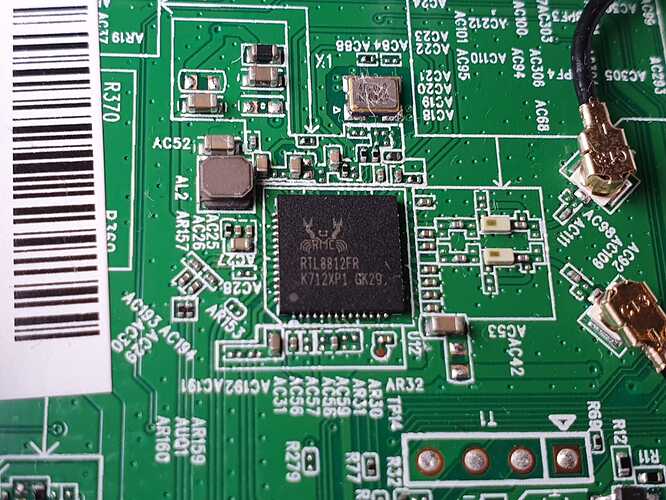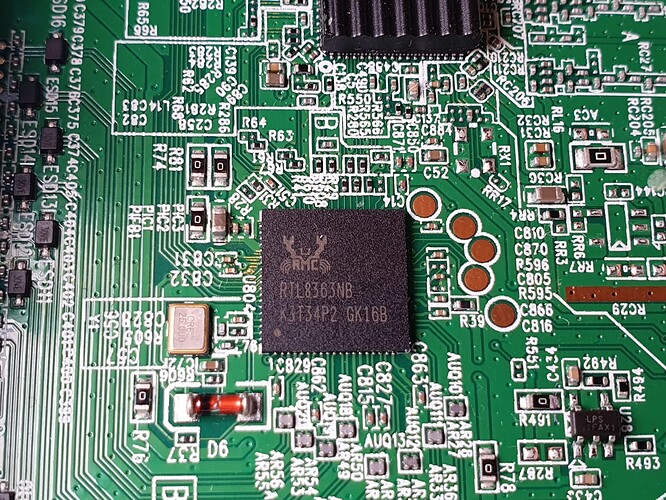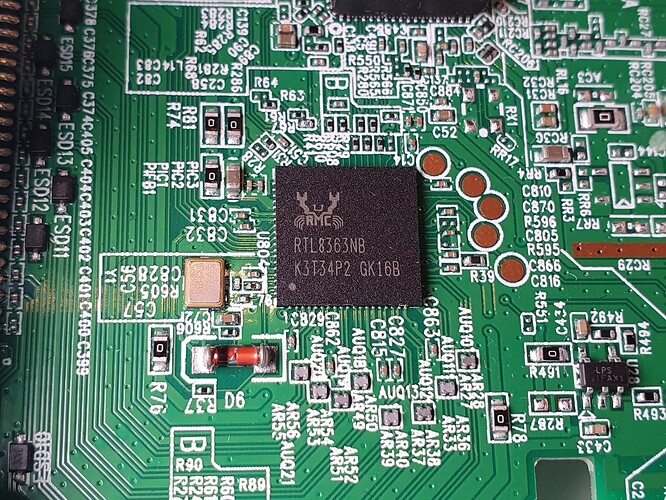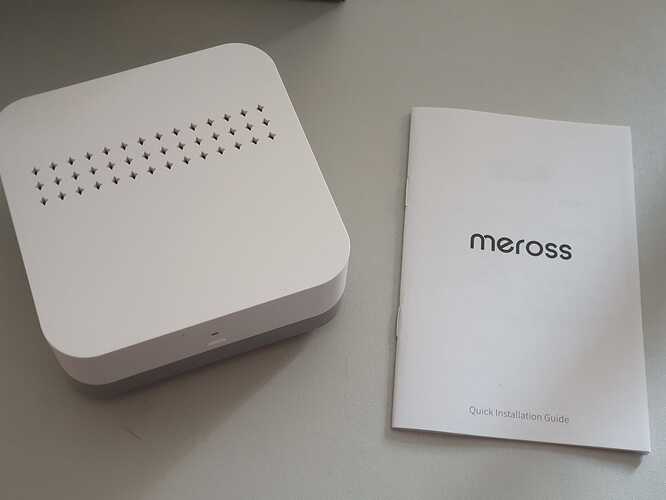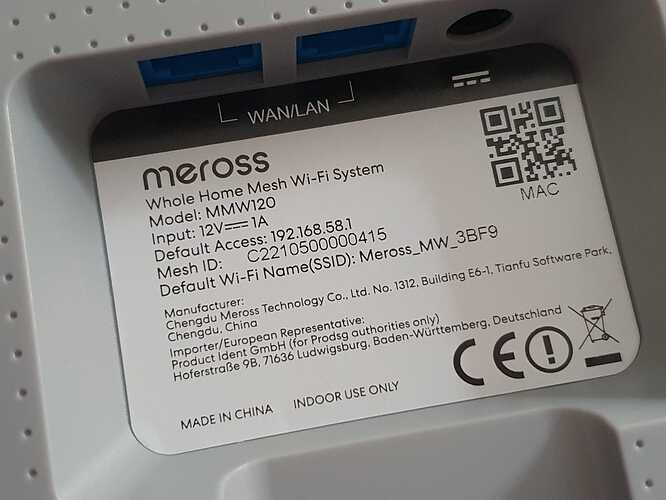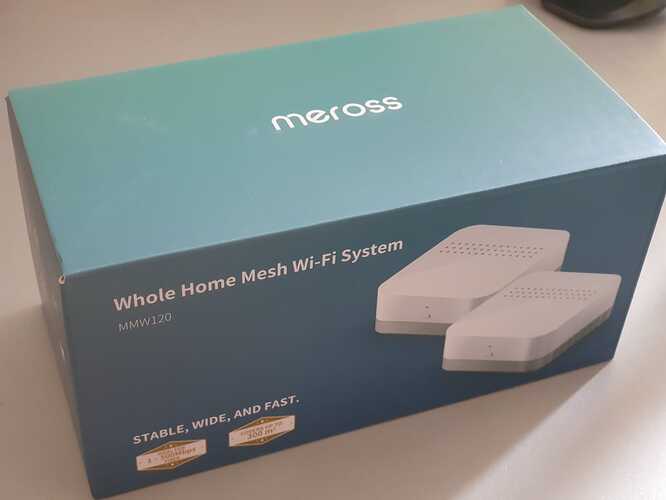Hi
Thanks a lot for your input, after applying the above changes in "https://github.com/ggbruno/openwrt"(kernel 4.14), this works fine, I could see the komikan board is booting. However when I try the code which is cloned from your repository ( kernel 5.4 ). The link is here "https://github.com/zafar1384/komikan_5.4". In this case I am getting the following error:
Starting kernel at 80000000...
[ 0.000000] Linux version 5.4.52 (user@ubuntu) (gcc version 8.4.0 (OpenWrt GCC 8.4.0 r14042-58c33c4569)) #0 PREEMPT Wed Mar 10 13:47:47 2021
[ 0.000000] printk: bootconsole [early0] enabled
[ 0.000000] CPU0 revision is: 00019385 (MIPS 24Kc)
[ 0.000000] MIPS: machine is Multilaser RE708 V1
[ 0.000000] Initrd not found or empty - disabling initrd
[ 0.000000] BOOTSTRAP = 8197f001 0 412582e0 80000000
[ 0.000000] Primary instruction cache 64kB, VIPT, 4-way, linesize 32 bytes.
[ 0.000000] Primary data cache 32kB, 4-way, PIPT, no aliases, linesize 32 bytes
[ 0.000000] Zone ranges:
[ 0.000000] Normal [mem 0x0000000000000000-0x0000000003ffffff]
[ 0.000000] Movable zone start for each node
[ 0.000000] Early memory node ranges
[ 0.000000] node 0: [mem 0x0000000000000000-0x0000000003ffffff]
[ 0.000000] Initmem setup node 0 [mem 0x0000000000000000-0x0000000003ffffff]
[ 0.000000] Built 1 zonelists, mobility grouping on. Total pages: 16240
[ 0.000000] Kernel command line: console=ttyS0,38400
[ 0.000000] Dentry cache hash table entries: 8192 (order: 3, 32768 bytes, linear)
[ 0.000000] Inode-cache hash table entries: 4096 (order: 2, 16384 bytes, linear)
[ 0.000000] Writing ErrCtl register=0000e0a7
[ 0.000000] Readback ErrCtl register=0000e0a7
[ 0.000000] mem auto-init: stack:off, heap alloc:off, heap free:off
[ 0.000000] Memory: 57364K/65536K available (4882K kernel code, 174K rwdata, 1032K rodata, 1200K init, 196K bss, 8172K reserved, 0K cma-reserved)
[ 0.000000] SLUB: HWalign=32, Order=0-3, MinObjects=0, CPUs=1, Nodes=1
[ 0.000000] rcu: Preemptible hierarchical RCU implementation.
[ 0.000000] Tasks RCU enabled.
[ 0.000000] rcu: RCU calculated value of scheduler-enlistment delay is 25 jiffies.
[ 0.000000] NR_IRQS: 128
[ 0.000000] random: get_random_bytes called from start_kernel+0x338/0x52c with crng_init=0
[ 0.000000] timer_probe: no matching timers found
[ 0.000000] clocksource: MIPS: mask: 0xffffffff max_cycles: 0xffffffff, max_idle_ns: 3822520893 ns
[ 0.000007] sched_clock: 32 bits at 500MHz, resolution 2ns, wraps every 4294967295ns
[ 0.008545] Calibrating delay loop... 663.55 BogoMIPS (lpj=1327104)
[ 0.047269] pid_max: default: 32768 minimum: 301
[ 0.052457] Mount-cache hash table entries: 1024 (order: 0, 4096 bytes, linear)
[ 0.060375] Mountpoint-cache hash table entries: 1024 (order: 0, 4096 bytes, linear)
[ 0.070834] rcu: Hierarchical SRCU implementation.
[ 0.077828] clocksource: jiffies: mask: 0xffffffff max_cycles: 0xffffffff, max_idle_ns: 7645041785100000 ns
[ 0.088685] futex hash table entries: 256 (order: -1, 3072 bytes, linear)
[ 0.097055] NET: Registered protocol family 16
[ 0.141242] clocksource: Switched to clocksource MIPS
[ 0.152058] NET: Registered protocol family 2
[ 0.158813] tcp_listen_portaddr_hash hash table entries: 512 (order: 0, 4096 bytes, linear)
[ 0.168142] TCP established hash table entries: 1024 (order: 0, 4096 bytes, linear)
[ 0.176628] TCP bind hash table entries: 1024 (order: 0, 4096 bytes, linear)
[ 0.184316] TCP: Hash tables configured (established 1024 bind 1024)
[ 0.191422] UDP hash table entries: 256 (order: 0, 4096 bytes, linear)
[ 0.198609] UDP-Lite hash table entries: 256 (order: 0, 4096 bytes, linear)
[ 0.206500] NET: Registered protocol family 1
[ 0.211266] PCI: CLS 0 bytes, default 32
[ 0.216509] 1800351c.gpio-controller: Realtek GPIO controller driver
[ 0.226405] workingset: timestamp_bits=14 max_order=14 bucket_order=0
[ 0.259052] squashfs: version 4.0 (2009/01/31) Phillip Lougher
[ 0.265786] jffs2: version 2.2 (NAND) (SUMMARY) (LZMA) (RTIME) (CMODE_PRIORITY) (c) 2001-2006 Red Hat, Inc.
[ 0.279481] Block layer SCSI generic (bsg) driver version 0.4 loaded (major 253)
[ 0.290721] Serial: 8250/16550 driver, 1 ports, IRQ sharing enabled
[ 0.299759] printk: console [ttyS0] disabled
[ 0.305105] 18147000.serial: ttyS0 at MMIO 0x18147000 (irq = 17, base_baud = 6250000) is a 16550A
£[ 0.315021] printk: console [ttyS0] enabled
[ 0.315021] printk: console [ttyS0] enabled
[ 0.323416] printk: bootconsole [early0] disabled
[ 0.323416] printk: bootconsole [early0] disabled
[ 0.334856] slram: not enough parameters.
[ 0.340005] spi-nor spi0.0: change speed to 41000000Hz, div 3
[ 0.346139] spi-nor spi0.0: found w25q256, expected m25p80
[ 0.351746] INFO: flash mode error, cmd 0x5A, flash_mode 0
please suggest what is wrong here,
thank you,
Regards,
Zafar
